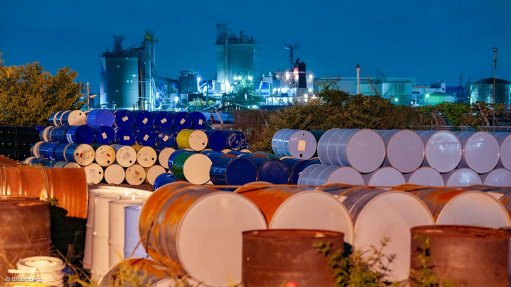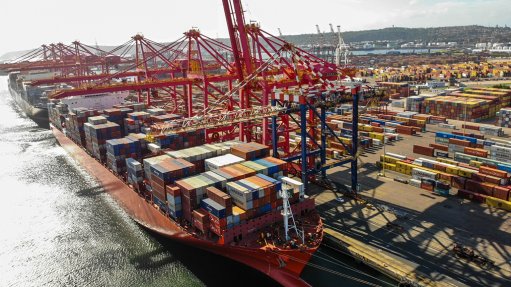Absurd territorial claim
A rather curious motion has been introduced in Lesotho’s Parliament. It seeks to reclaim all of South Africa’s Free State province, as well as parts of Mpumalanga, KwaZulu-Natal, the Eastern Cape and the Northern Cape – all of which were occupied by Basotho until their seizure in the nineteenth century.
The motion’s mover, the leader of a political party with only one seat in Parliament, believes the move, which would see Lesotho’s territory increase from 30 000 km2 to 240 000 km2, would bring prosperity to the so-called Mountain Kingdom, which is completely enveloped by South Africa. Being largely mountainous, it has very limited agricultural land.
An interesting fact about Lesotho is that its two-million-strong population constitutes half of the Sotho speakers in South Africa. But then again Africa’s borders are largely absurd and indefensible, having been drawn up at the infamous Berlin Conference of 1884 by men who wouldn’t care to be guided by what I would call “natural reasons”, namely ethnicity, linguistics and economics. What’s more, no prior field surveys had been conducted.
How the partition played out was succinctly captured by Lord Salisbury, who had three stints as British Prime Minister, including during the Berlin Conference: “We have been engaged upon drawing lines upon maps where no white man’s foot ever trod; we have been giving away mountains and rivers and lakes to each other, only hindered by the small impediment that we never knew where the rivers and mountains were.”
The partition of Africa may have been an absurdity that lacked ethnic, linguistic and economic coherence, but the motion that has been broached in Lesotho’s Parliament is even more so. Is the motion’s mover oblivious to the resolutions of the African Union (AU), and the Organisation of African Unity (OAU) before it, concerning border tensions where they might exist? The first such resolution, passed at the very first ordinary session of OAU heads of State and government in 1964, adopted the principle of “respect for borders in the State where they were located when they gained independence”. Then, in 2002, in its new guise as the AU, the continental body called for the delimitation and demarcation of borders where this had not yet been done. About five years later, it adopted a declaration encouraging efforts to prevent structural conflicts, particularly through the implementation of the AU Border Programme.
Perhaps the fellow in Lesotho should be reminded that a major post-independence border adjustment has happened only twice – when Eritrea seceded from Ethiopia in 1991 and when South Sudan ceased to be part of Sudan about 20 years later. In both cases, the secession was the culmination of bitter wars.
Granted, the elements in Lesotho are not the first to express unhappiness with their national borders, with Tunisia and Libya (1982), Guinea Bissau and Senegal (1984), Burkina Faso and Mali (1986), Libya and Chad (1973 to 1994), Cameroon and Nigeria (1991) and Botswana and Namibia (1995) all having dragged each other to the International Court of Justice for arbitration. All those efforts came to nought.
Instead of the antics of the few individuals in Lesotho – the government there hasn’t made a pronouncement on the issue – our countries should be focusing on “softening” their borders through implementing provisions of the African Continent Free Trade Agreement (AfCFTA), for example, to boost intra-Africa trade and to make the legitimate movement of people between countries less of a pain.
If it’s fully implemented, the AfCFTA has the potential to increase incomes by 9% by 2035 and lift about 50-million people out of poverty. This requires African countries to harmonise their policies on e-commerce, investment and intellectual property, for example. That’s where we should be expending our energies instead of engaging in counterproductive debates.
Comments
Announcements
What's On
Subscribe to improve your user experience...
Option 1 (equivalent of R125 a month):
Receive a weekly copy of Creamer Media's Engineering News & Mining Weekly magazine
(print copy for those in South Africa and e-magazine for those outside of South Africa)
Receive daily email newsletters
Access to full search results
Access archive of magazine back copies
Access to Projects in Progress
Access to ONE Research Report of your choice in PDF format
Option 2 (equivalent of R375 a month):
All benefits from Option 1
PLUS
Access to Creamer Media's Research Channel Africa for ALL Research Reports, in PDF format, on various industrial and mining sectors
including Electricity; Water; Energy Transition; Hydrogen; Roads, Rail and Ports; Coal; Gold; Platinum; Battery Metals; etc.
Already a subscriber?
Forgotten your password?
Receive weekly copy of Creamer Media's Engineering News & Mining Weekly magazine (print copy for those in South Africa and e-magazine for those outside of South Africa)
➕
Recieve daily email newsletters
➕
Access to full search results
➕
Access archive of magazine back copies
➕
Access to Projects in Progress
➕
Access to ONE Research Report of your choice in PDF format
RESEARCH CHANNEL AFRICA
R4500 (equivalent of R375 a month)
SUBSCRIBEAll benefits from Option 1
➕
Access to Creamer Media's Research Channel Africa for ALL Research Reports on various industrial and mining sectors, in PDF format, including on:
Electricity
➕
Water
➕
Energy Transition
➕
Hydrogen
➕
Roads, Rail and Ports
➕
Coal
➕
Gold
➕
Platinum
➕
Battery Metals
➕
etc.
Receive all benefits from Option 1 or Option 2 delivered to numerous people at your company
➕
Multiple User names and Passwords for simultaneous log-ins
➕
Intranet integration access to all in your organisation


















